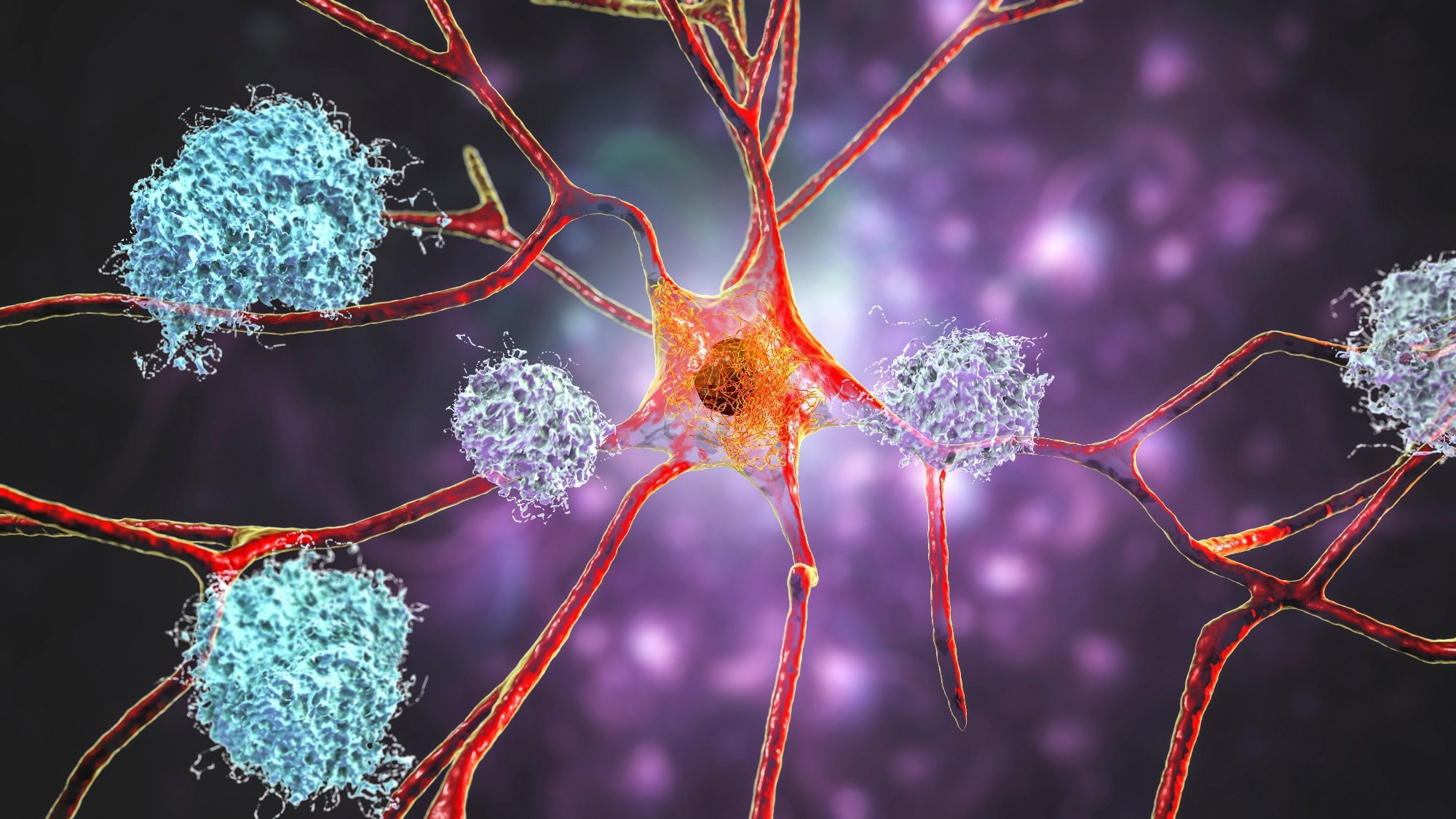According to a recent study by researchers at the University of Colorado Anschutz Medical Campus, the overexpression of a gene linked to cell division and the structure and function of neurons could prevent and protect against cognitive deterioration in both mice and people with Alzheimer’s disease (AD).

Image Credit: University of Colorado Anschutz Medical Campus
Despite the fact that amyloid beta (Abeta), the major component of plaques in the brains of patients suffering from AD, is present, the gene Kinesin-5 or KIF11 accomplishes this. In the past, scientists have focused on the plaques while developing cures for the deadly condition. They avoided them in this situation.
The journal iScience published the study online.
Overexpressing KIF11 in mice did not affect the amyloid levels in the brain. Yet they were still cognitively normal despite the plaques. This is one of the best indications that you can maintain cognition without getting rid of the plaques.”
Huntington Potter, Study Co-Senior Author and Professor, Neurology, University of Colorado Anschutz Medical Campus
Potter is also the director of the University of Colorado Alzheimer’s and Cognition Center and of Alzheimer’s research at the Linda Crnic Institute for Down Syndrome at the University of Colorado School of Medicine.
KIF11 is a motor protein well-recognized for its function in non-neuronal cells’ mitosis or cell division. However, it also has a significant impact on how neurons develop their dendrites and dendritic spines, which are essential for learning and memory and serve as a means of communication between neurons.
Abeta, the primary component of Alzheimer’s plaques, has the ability to block KIF11 and harm these structures.
In comparison to AD mice with normal levels of KIF11, the researchers discovered that AD mice with overexpression of the gene performed better on cognitive tests. Then, using genetic information from AD patients donated by Rush University in Chicago’s Religious Orders Study and Memory and Aging Project (ROS/MAP), they examined the data.
They were interested in determining if changes in KIF11 levels that are caused by natural processes are associated with improved cognitive function in individuals with or without amyloid plaques.
Our results from analyzing the human data indicate that higher levels of KIF11 correlate with better cognitive performance in a cohort of older adults with amyloid pathology. Thus, our results suggest that higher KIF11 expression levels may partially prevent cognitive loss during the course of AD in humans, which aligns with our findings regarding the role of KIF11 in animal models of AD.”
Esteban Lucero, Study Lead Author, University of Colorado School of Medicine
This information opens up the possibility for researchers to start testing new or existing drugs that can safely produce this effect in humans, according to Potter and Co-Senior Author Heidi Chial, PhD, Assistant Professor of Neurology and Director of Grant Strategy and Development at the University of Colorado Alzheimer’s and Cognition Center.
Many current experimental treatments for AD have focused on reducing Abeta production or on increasing the clearance of Abeta plaques. Most of these approaches have failed to prevent or reverse cognitive decline in clinical trials. Clearly, alternative approaches to the development of AD therapeutics are needed.”
Heidi Chial, Study Co-Senior Author and Assistant Professor, Neurology, University of Colorado Alzheimer’s and Cognition Center.
Source:
Journal reference:
Lucero, E. M., et al. (2022). Increased KIF11/kinesin-5 expression offsets Alzheimer Aβ-mediated toxicity and cognitive dysfunction. iScience. doi.org/10.1016/j.isci.2022.105288